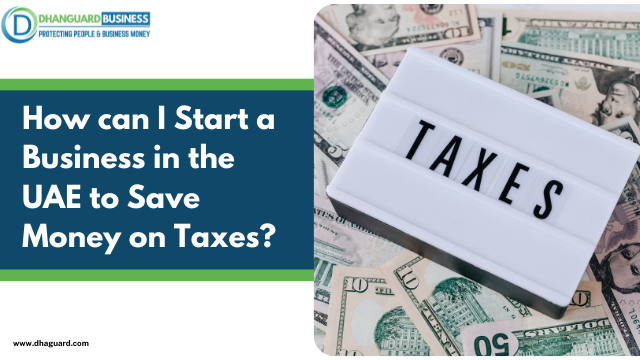The company formation in the UAE is customised to meet the needs of the investor in terms of tax savings. Residents and international investors in the UAE pay lower taxes.
The Mainland and the Free Zone are the two primary commercial jurisdictions in the UAE for company formation. It is controlled by several business laws and imposes various taxes as a result.
The Value-Added-Tax (5%), the Excise Tax for specific items (tobacco, energy drinks, etc.), and the Tourism & Municipality Tax for hotels are the only taxes charged in the UAE. In addition, the UAE has a Corporate Tax that applies solely to foreign banks and oil companies.
Income tax, capital gains and profits tax, inheritance tax, and tax on income from property sales are all exempt in the UAE. The UAE's tax-free environment is tempting investors to establish enterprises there.
Factors Influencing Investors' Decisions to Open a Business in the UAE
The factors that influence Investor’s Decisions are as follows-
Business Setup Made Simple and World-Class Infrastructure
The UAE has a lot to offer investors, and it's one of the Middle East's most established economic and business hubs.
Various elements like as government backing, business and technology infrastructure, banking services, financial structure, innovation, and access to the global market are luring investors to this region.
Agreements with other countries on free trade and tax savings
Due to UAE's tax-saving agreements with other nations, investors can benefit from tax savings while conducting commercial activities both domestically and globally.
UAE is a fantastic trade location for foreign investors because to its Free Trade Agreements with a number of countries and the remission of Customs Duty fees for Free Zone enterprises.
In addition, because of its location between the east and west coasts of the globe, the UAE serves as an ideal logistical centre for international trade.
Double Taxation Agreement Treaty
To avoid double taxation on offshore investments, the UAE has 94 agreements in place with other countries.
The purpose of the Double Taxation Treaty is to encourage cross-border commerce and investment.
It also protects taxpayers from double taxation and encourages additional investors to set up shop in the UAE and take advantage of the tax incentives.
Companies and high-net-worth individuals based in the UAE can apply for a Tax Residency Certificate and take advantage of the Double Taxation Avoidance Agreement's benefits (DTAA).
Trends in the Niche Market
The UAE's permissive policies in the majority of industries will attract more investment. The UAE's import export market makes a substantial contribution to the country's income growth.
Many business-friendly policies exist in the UAE, including 100 percent foreign ownership, 100 percent profit repatriation, world-class infrastructure, simplicity of business creation, and tax incentives, among others.
Read more:-Let’s Understand the concept of Taxation structure for Expats in UAE
Mainland and Freezone Taxation
Let’s Understand the Taxation in UAE Mainland & Freezone separately-
Taxation in the United Arab Emirates Mainland
Companies in the UAE will be liable to various taxes depending on their business jurisdiction.
Companies in the UAE Mainland are primarily subject to two types of taxes: Customs Tax and Municipality Tax.
Certain commodities sold in the UAE are subject to excise duty, as well as corporate tax for oil companies and foreign banks operating in the UAE.
Customs Tax
For mainland enterprises, there is a 5% import duty. Certain industries, such as food supplies, building materials, medical products, and things intended for the free zone, are excluded.
Municipality Taxes
Restaurants, hotels, hotel apartments, resorts, and other tourism-related businesses in the UAE will be charged a 10% Municipality Fee, as well as some tourism-related taxes such as Service Tax, Room Rate Tax, City Tax, and Tourism Fee.
Corporate Income Tax
Only oil companies and foreign banks are subject to the UAE's Corporate Tax. In the UAE, there is no corporate tax for service or commercial enterprises.
Excise Tax in UAE
In the UAE, excise tax is levied on cigarettes, alcohol, confectionary, soft drinks, and fast food, all of which are deemed harmful.
Carbonated drinks have a 50% excise tax, tobacco goods have a 100% excise tax, and energy drinks have a 100% excise tax.
Taxation in UAE Free Zone
There are a few financial advantages for foreign investors in Free Zone Companies:
- 100 percent foreign ownership with 100 percent profit repatriation;
- 50 years of no corporate taxes;
- No personal income taxes;
- Customs duty exemptions;
- Easy global trade.
Conclusion
In a nutshell, the UAE is a great place to start a business and save money on taxes.
The growth drivers for foreign investment are entrepreneur-friendly legislation, business infrastructure, convenience of doing business, availability of trained labour, access to the worldwide market, and so on.
If you need further help deciding on the correct business licence type, activity, and jurisdiction to maximise tax savings, contact one of professional experts of Dhanguard right away!

